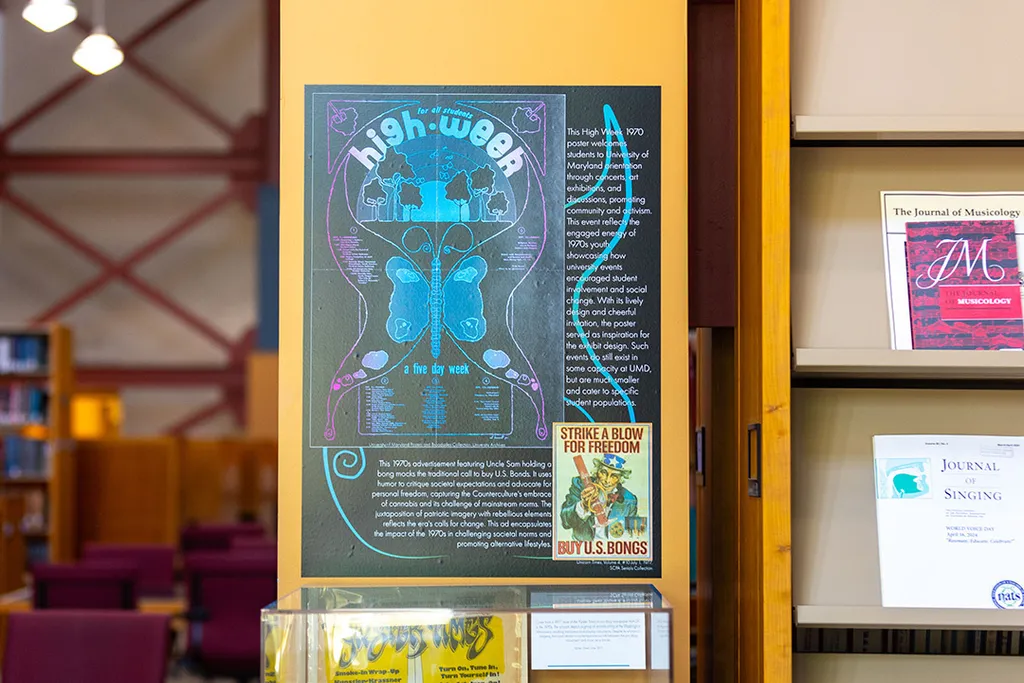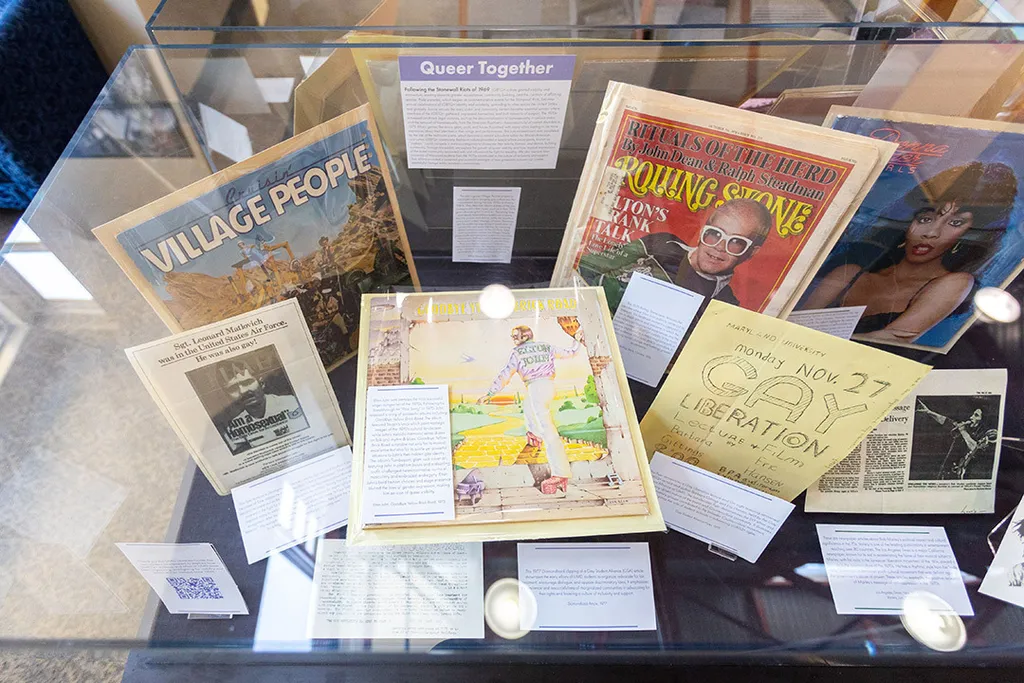- July 16, 2024
- By Sala Levin ’10
It was the decade that Elton John’s glittery pink platform shoes stepped onto the yellow brick road, that George Harrison and Ravi Shankar organized a pair of benefit concerts for Bangladeshi refugees and that the University of Maryland hosted an orientation for new students called—yes, really—“High Week.”

The times they were a-changin’ by the 1970s, and UMD students were at the forefront, staging large-scale protests against the Vietnam War, marching for women’s and civil rights, and celebrating the first Earth Day. Now, a new generation on campus can discover the causes of the ’70s and how they resonated in the music of the era: “Voices of the Counterculture” is a new exhibit in the Michelle Smith Performing Arts Library, in which First-Year Innovation & Research Experience (FIRE) students mined the university’s archives to analyze how political and social changes influenced popular music.
Led by Elizabeth Massey, the assistant clinical professor who leads FIRE’s Music and Social Identity stream, the six undergraduate students in the summer program identified five of the decade’s key themes: the Vietnam War, the burgeoning movement for LGBTQ+ rights, the contributions of Black artists and activists, youth activism and psychedelic drugs. Then, they dug through UMD’s Special Collections in Performing Arts and University Archives to choose 31 posters, magazines, photographs, fan zines and other memorabilia that touched on those themes at UMD and nationally.
[“You Had a Feeling That You Could Change the World”: UMD’s Vietnam Protests, 50 Years Later]

Defne Demirer ’24 focused on LGBTQ+ activism; her section of the exhibit includes a copy of Elton John’s 1973 “Goodbye Yellow Brick Road” album, as well as the 1976 edition of Rolling Stone in which John came out as bisexual. She also selected a Village People album and clips from The Diamondback advertising the newly formed gay student alliance’s movie nights and lectures.
“I was trying to see how UMD students created spaces to gain visibility and acceptance,” said Demirer. “I wanted to capture that both in music, nationally, and also specifically for UMD students.”
During her archival research on youth activism, Inayat Jain ’24 was drawn to memorabilia from the two performances of 1971’s Concert for Bangladesh, organized by Harrison, the former Beatle, and Shankar, the Indian sitar player. “I’m South Asian, so that really spoke to me,” Jain said. “You don’t see a lot of South Asian representation in art and cultural movements from the ’70s, so it was really amazing to see such strong voices like George Harrison and Ringo Starr working on a big concert for [refugees].”
Through conducting her research, Jain said, she learned a lot about the ’70s. “I thought it was mostly rock and roll,” she said. “I didn’t know a lot about punk—knowing now that punk was such a big movement in the counterculture was really powerful to learn.”
She hopes that other students will leave the exhibit feeling more connected to the youths of that decade. “Yeah, it was some 50-odd years ago,” she said, “but all of the things they were fighting for then are still very important to us now.”
“Voices of the Counterculture” is on display in the Michelle Smith Performing Arts Library through the Fall 2024 semester. Students will discuss their research at an open house there from 1 to 3 p.m. July 16.
